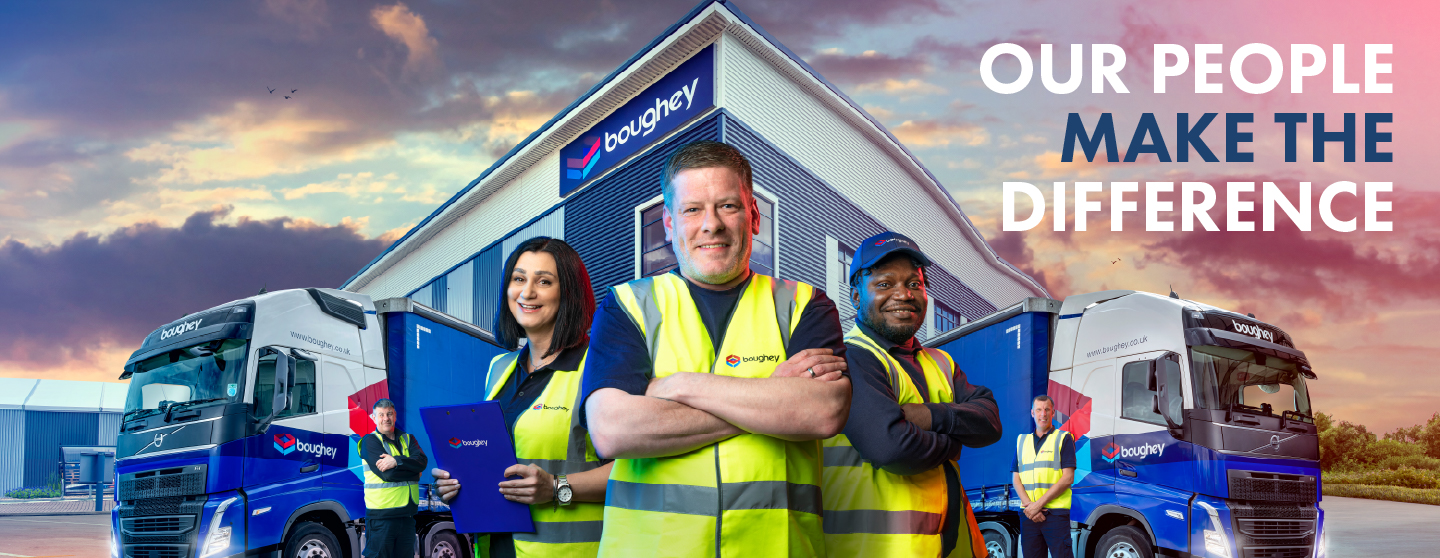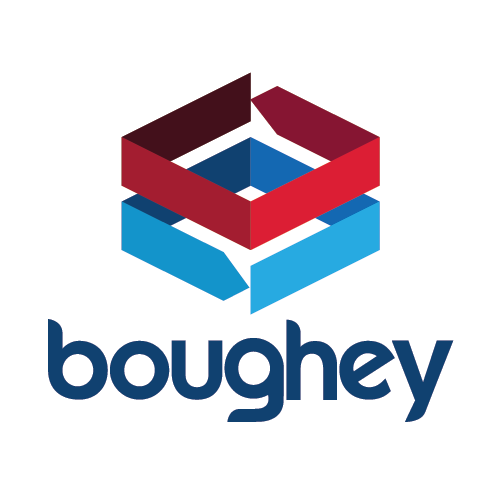

Boughey Distribution Ltd

Cheshire East, United Kingdom
June 2024
Transportation support
Service with Significant Environmental Footprint
United Kingdom
Boughey Distribution excels in delivering comprehensive warehousing and distribution services tailored to the food industry, with a particular expertise in the ambient grocery sector. The company offers a diverse range of specialist services, including consolidation, e-fulfilment, and contract packing, ensuring operational efficiency for its clients. The company operates from three strategically located sites in Wardle, Crewe, and Newcastle-under-Lyme in the UK, managing a combined total of 187,000 pallet spaces. With a workforce of over 850 dedicated colleagues and a fleet of more than 150 vehicles, Boughey Distribution is a proud member of Palletline, the UK's leading palletized distribution network, committed to delivering exceptional service. Celebrating its 60th anniversary in 2024, Boughey Distribution is deeply involved in the local community, sponsoring events, charities, and sports clubs. Under the leadership of General Manager Angela Carus, the company prioritizes the well-being of its employees by fostering an inclusive, safe, and enjoyable work environment. Boughey Distribution is dedicated to maintaining the principles of the B-Corp accreditation seamlessly integrating sustainability and community engagement into its core business practices.
Overall B Impact Score
Governance 15.1
Governance evaluates a company's overall mission, engagement around its social/environmental impact, ethics, and transparency. This section also evaluates the ability of a company to protect their mission and formally consider stakeholders in decision making through their corporate structure (e.g. benefit corporation) or corporate governing documents.
What is this? A company with an Impact Business Model is intentionally designed to create a specific positive outcome for one of its stakeholders - such as workers, community, environment, or customers.
Workers 26.6
Workers evaluates a company’s contributions to its employees’ financial security, health & safety, wellness, career development, and engagement & satisfaction. In addition, this section recognizes business models designed to benefit workers, such as companies that are at least 40% owned by non-executive employees and those that have workforce development programs to support individuals with barriers to employment.
Community 16.3
Community evaluates a company’s engagement with and impact on the communities in which it operates, hires from, and sources from. Topics include diversity, equity & inclusion, economic impact, civic engagement, charitable giving, and supply chain management. In addition, this section recognizes business models that are designed to address specific community-oriented problems, such as poverty alleviation through fair trade sourcing or distribution via microenterprises, producer cooperative models, locally focused economic development, and formal charitable giving commitments.
Environment 19.8
Environment evaluates a company’s overall environmental management practices as well as its impact on the air, climate, water, land, and biodiversity. This includes the direct impact of a company’s operations and, when applicable its supply chain and distribution channels. This section also recognizes companies with environmentally innovative production processes and those that sell products or services that have a positive environmental impact. Some examples might include products and services that create renewable energy, reduce consumption or waste, conserve land or wildlife, provide less toxic alternatives to the market, or educate people about environmental problems.
Customers 3.5
Customers evaluates a company’s stewardship of its customers through the quality of its products and services, ethical marketing, data privacy and security, and feedback channels. In addition, this section recognizes products or services that are designed to address a particular social problem for or through its customers, such as health or educational products, arts & media products, serving underserved customers/clients, and services that improve the social impact of other businesses or organizations.